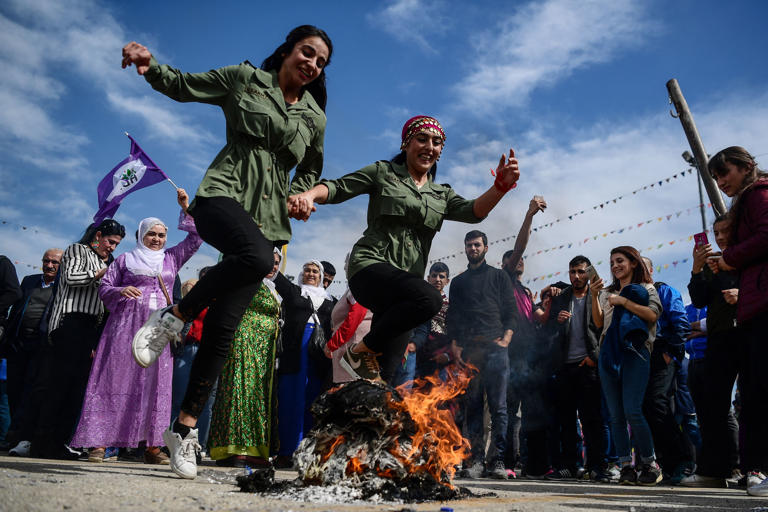
What is Nowruz? How and when is the festival celebrated by Iranian people around the world?
Story by Charlie Duffield – Evening Standard

Whilst in the Northern Hemisphere, as March bows out and heralds the first day of spring during the vernal equinox, for 300 million people around the world, it’s the start of the new year as well.
Nowruz has been celebrated in the Persian diaspora for more than 3,000 years.
The day is always celebrated during the spring equinox which usually falls on March 21. However, in 2023, it was observed on Monday, March 20.
Here’s what you need to know about the festival.
What is Nowruz?
Nowruz means “new day” and is a holiday marking the arrival of spring and the first day of the year in Iran.
It originates from Zoroastrianism, a religion practised in ancient Persia (now Iran) that saw the arrival of spring as a victory over darkness.
The holiday was maintained after the Islamic conquest of Persia in the seventh century and the decline of Zoroastrianism’s popularity.
Why is Nowruz celebrated?
According to the United Nations, Nowruz is an ancestral festivity marking the first day of spring and the renewal of nature.
It promotes values of peace and solidarity between generations and within families as well as reconciliation and neighbourliness.
It contributes to cultural diversity and friendship among peoples and different communities.
Celebrating Nowruz means the affirmation of life in harmony with nature, awareness of the inseparable link between constructive labour and natural cycles of renewal, and a solicitous and respectful attitude towards natural sources of life.
Where and how is Nowruz celebrated?
Nowruz has been celebrated for more than 3,000 years in the Balkans, the Black Sea Basin, the Caucasus, Central Asia, the Middle East, and the general area of Iran.
New Year is often a time when people wish for prosperity and new beginnings.
On the last Wednesday before Nowruz, many celebrate Charshanbe Suri, a night in which people jump over fire or go to doors banging spoons to scare away bad luck.
People also visit cemeteries and bring offerings for the dead, whom some believe visit before the spring rite begins.
In the lead-up to the holiday, people perform ritual dances and fill vessels in their home with water, which is associated with health, in an attempt to banish bad luck.
An important tradition practised during this time is the gathering around ‘the Table’, decorated with objects that symbolise purity, brightness, livelihood, and wealth, to enjoy a special meal with loved ones.

An Iranian family enjoy a picnic in a Tehran park on Sizdah bi Dar (Atta Kenare / AFP via Getty Images)© Provided by Evening Standard
Households set up tables covered with seven symbolic items named haft-seen.
Haft means “seven” and “seen” is “s” in Farsi, and all of the items start with the letter.
These include seed sprouts (usually wheat, oats, and seeds, which symbolise rebirth), senjed (also known as silverberry or Persian olive, which is thought to spark love), garlic (protection), apple (fertility), sumac (love), vinegar (patience), and samanu, a pudding made of sprouted wheat (affluence).
As the spring’s festival is fertility and new life, it’s appropriate that many revellers celebrate with eggs as well as seeds. The table also can include a Koran, mirrors, and poetry.
‘Sizdah bi Dar’, the 13th day of Noruz, or the Iranian New Year. The end of the Noruz holidays for children, Iranians often spend the day outdoors to welcome spring.
Gifts are exchanged, especially for children, featuring objects made by artisans.
There are also street performances of music and dance, public rituals involving water and fire, traditional sports, and the making of handicrafts.












 Posted in
Posted in 











